Way, way back in the last decade and previous century, I used to get irritated by interruptions to the classroom. I felt most were a waste of valuable learning and teaching time. To quote Neil Fiore:
“Time is a precious commodity. It’s a non-renewable resource and once spent is gone forever.”
The pressures of covering the curriculum, ensuring learning opportunities were as good (or as perfect!) as possible made interruptions a hindrance and not a help.
Interruptions impeded the flow of a lesson and distracted from the learning I had deemed necessary for my class to undertake. With volatile classes, it could take time to re-settle the class. Thus I deemed interruptions as a Bad Thing and I used tactics such as notices stuck on my class door to minimise these events.
For some reason, I’ve grown much more accepting of an event, person or situation disrupting work outside. I’m not exactly sure why this is. Not all of the unexpected happenings are welcome. Grass cutters seem to have my timetable and frequently follow me from school to school or around a school ground as I challenge the children to find the quietest spot away from the din. Occasionally we have even retreated indoors (shock and horror)!
Yet somehow this bothers me less. Why is this?
My only theory is that I’ve completely accepted that interruptions are a normal part of being outside. Rather than mind and resist these, I’ve learnt to work with them and er…enjoy the spark that it brings to the session! I feel that as long as the children are benefiting from being outside then I mind less what they actually learn.
With one class that I took out weekly, every session involved an incident or saga which involved me changing or adjusting the planned activity with the children. This included the discovery of dog poo, children needing to go to the toilet, rocks being chucked on the road, managing glass shards, etc. I think this helped me prepare for any eventuality.
The other week I was working with a P3 class outside using shells. I called the children back into a circle to demonstrate the next part of the lesson. No sooner had the class gathered, then the local colony of herring gulls swooped down into the playground. They had spotted the shells lying on the tarmac and had jumped to the conclusion that these were morsels of leftover food!
What followed was a comedy as the gulls picked up the shells, clacked them a couple of times and spat them out. This happened repeatedly. The children were amazed and fascinated. It was nothing to do with the Carroll diagrams that we were using to sort and classify the shells. It was everything to do with the joy of the moment. From this we deduced that perhaps this could be a good trick to get rid of scavenging gulls – lay out shells for a few days over the holidays and see if the gulls move on else where.
I’ve had lessons where the discovery of fungi or a wee beastie has resulted in everyone stopping in their tracks and completing forgetting about the original activity. But then quite often that’s what happens naturally in our lives. We are busy doing something and then someone turns up or happens unexpectedly and we change tack. Being flexible in our approach to learning and on-task focus may be good training for real life and for the general interruptions that occur. My son regards interruptions as a welcome brain-break in class.

Freedom to learn is precious. The chops and changes could all be part of this freedom as we have to accept that each child learns best in their own unique way. Being adaptive professionals is part of our job and perhaps over recent years, going outside has enabled me to become more adaptive and in tune with the way children learn rather than the way I want them to learn. Also it’s really enjoyable to feed the spark and let the children take the lead in the learning that ensures.
For some reason, I can’t help feeling that this quote is applicable to interrupted activities outside, “If you love somebody, let them go. If they return, they were always yours. If they don’t, they never were.” In other words, if what we are offering children is of enough value and benefit to them, then they will come back to the task. If they don’t, perhaps it wasn’t that good an activity anyway… hmm!


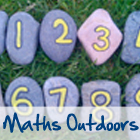
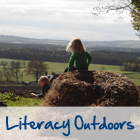
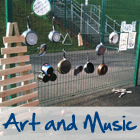
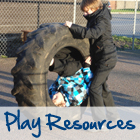



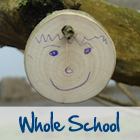




















Juliet. This is a truly wonderful and important post. What you have written has really touched me. I too have grown impatient with the prescriptive nature of modern life. I constantly suggest to my children that they stop, listen, smell, look around. no matter the bird you were studying has flown away. Instead you have found its nest and the beauty of the tree in which it rested. Thank you SO much. much love Caro
What a great piece Juliet – although I find it much easier to deal with distractions outside too. I was just thinking about this the other day, I seem to feel that I have to be in ‘teacher mode’ when inside but can be more free outside to just enjoy where the children are going with things! Maybe it’s a combination of getting more secure in your own skin and outdoor learning being the best way to go?
Amazing piece, great insights, thanks for sharing. Sometimes I think of interruptions, especially when the children find something of interest as just a different agenda. It is so important that we follow their lead and explore what is to be explored.
Thanks for the nice feedback. I think it’s been on my mind a lot recently in that I’ve been doing much more outdoor learning work with classes than usual in recent weeks.
I think it is being comfortable about where one is as a teacher – not in terms of place but mindset. Being able to go with the flow helps. Also, because I always ensure a feedback or plenary session at the end of an activity we can review what happened, why and how we all managed to deal with this. I think this can help children develop resilience and acceptance of things that just happen.
Nice post, Juliet. So often we have a teacher agenda that leaves no room for the real give and take of the education of us all, teachers and students alike. I think what you are saying is leave room for what you can’t control. There will be less frustration, less power struggles and more learning.
YES! Thanks Tom for expressing this so succinctly!
I agree- great post! I also think as we get more comfortable with our own teaching style (and get to the point that we don’t feel we need to defend every little thing) we tend to relax a bit and go with the flow of the interuptions- whether they are inside or out!
I too used to find interruptions a terrible intrusion, I would become overprotective of my pupils and their session time(I work mainly 1:1). Slowly over the last few years I too have come to value interactions with others whilst we are working outdoors-now they invariably add something to the session. Even if its just an observation by me of how my pupil reacts to something/someone.
What changed?-My confidence in my ability as a practitioner, and the trust that if a pupil interacted with something then they ‘needed’ to. Plus the acceptance that although I might want to make a perfect space and time for my pupils I was trying to create something that rarely exists and that we all have to make the most of what we have, where we are, in that moment…